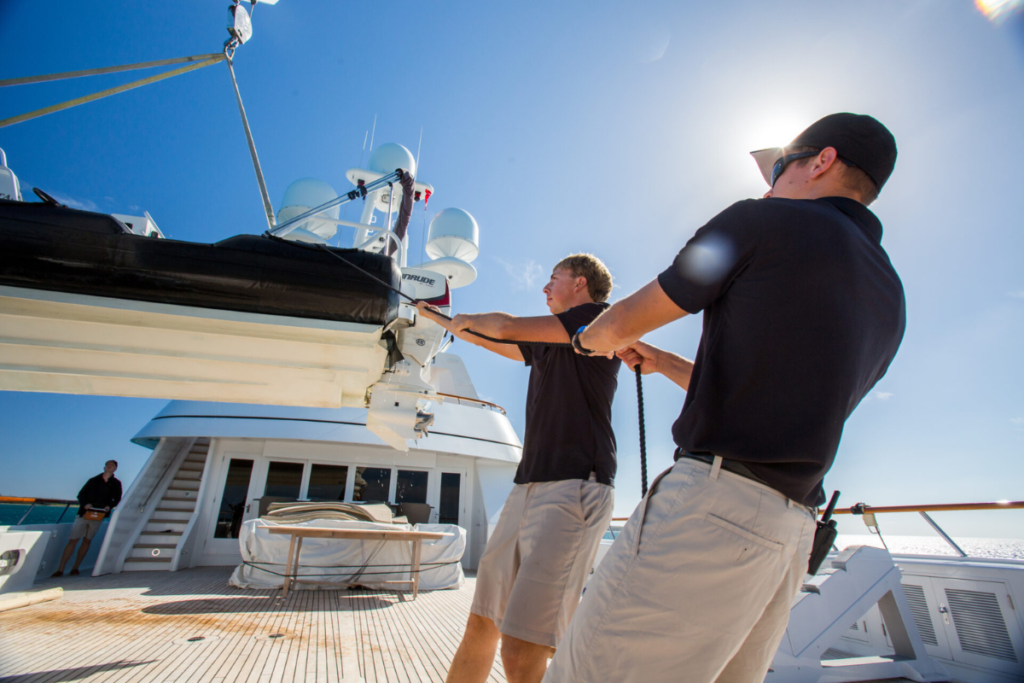
Understanding the Unique Environment of Yacht Staff
The yachting industry presents a unique work environment that combines luxury, high expectations, and the challenges of life at sea. Yacht staff members operate in a fast-paced and often high-pressure atmosphere where every day can present new challenges. Whether navigating a busy itinerary or ensuring guest satisfaction, the dynamic nature of yacht crew roles requires exceptional adaptability and teamwork. Each crew member must perform their duties while also being prepared for unexpected situations, such as adverse weather or demanding guests. Moreover, working on a yacht often means long hours in close quarters, intensifying the need for effective communication and cooperation. In such an environment, the ability to lead effectively can make all the difference in maintaining morale and ensuring a positive onboard experience. This is where leadership coaching becomes a vital resource for yacht staff, equipping them with the skills necessary to thrive in their roles.
The Role of Leadership Coaching
Leadership coaching plays a critical role in the development of yacht staff by focusing on both personal and professional growth. Unlike traditional management training, which often emphasizes skills and compliance, leadership coaching takes a more holistic approach. It encourages crew members to reflect on their experiences and cultivate their leadership potential through targeted strategies. By working with a coach, yacht staff can gain valuable insights into their strengths and areas for improvement. This tailored support fosters a sense of ownership over their development, empowering them to take charge of their roles on board. The benefits of leadership coaching extend beyond individual performance; as crew members grow and refine their skills, the entire team becomes more cohesive and effective. Ultimately, investing in leadership coaching enhances the overall quality of service provided to guests, leading to a more rewarding experience for everyone involved.
Key Components of Effective Leadership Coaching for Yacht Staff
Effective leadership coaching for yacht staff incorporates several key components that address the specific needs of crew members. One essential focus area is the development of emotional intelligence, which allows crew members to manage their emotions and understand the feelings of others. This skill is particularly important in high-pressure environments where stress and fatigue can impact interactions. Additionally, enhancing communication skills is vital for ensuring that misunderstandings are minimized and that teamwork is maximized. Coaches employ various techniques to help crew members express themselves clearly and listen actively, fostering an environment of collaboration. Another critical element of coaching is stress management. Yacht staff often face demanding schedules, and teaching them strategies to cope with stress can prevent burnout and maintain well-being. Finally, setting measurable goals and establishing accountability are crucial in a coaching relationship. By defining specific objectives, crew members can track their progress and celebrate milestones, reinforcing their commitment to personal and professional growth.
Challenges Faced by Yacht Staff and How Coaching Addresses Them
Yacht crew members encounter a range of challenges that can significantly impact their well-being and effectiveness. The high-pressure nature of the job can lead to stress, anxiety, and burnout, particularly when crew members are expected to deliver top-notch service while managing demanding guests. Additionally, crew retention and turnover can disrupt team dynamics, creating a cycle of instability that affects morale. Miscommunication is another common issue, especially when crew members come from diverse backgrounds and possess varying levels of experience. Such barriers can lead to conflicts and inefficiencies, ultimately impacting service quality. Furthermore, the isolation that often accompanies life onboard can take a toll on mental health and overall happiness. Long hours and demanding schedules make it difficult for crew members to maintain a healthy work-life balance, diminishing personal relationships and overall well-being. Leadership coaching addresses these challenges by providing crew members with tools to manage stress, improve communication, and foster stronger relationships, creating a supportive environment where everyone can thrive.
Tailoring Coaching Approaches for Different Roles on a Yacht
A one-size-fits-all approach does not work in the context of yacht staff; thus, leadership coaching must be tailored to address the unique responsibilities and challenges associated with different roles. Captains and heads of departments require coaching that focuses on advanced leadership skills, such as decision-making under pressure and motivating their teams. In contrast, deckhands may benefit from coaching that emphasizes practical skills, teamwork, and adaptability. Understanding the individual strengths and weaknesses of each crew member is essential for creating effective coaching plans. Tailored coaching also helps to build confidence among crew members, empowering them to take initiative and lead when necessary. Moreover, incorporating role-specific scenarios into coaching sessions allows staff to practice their skills in a safe and constructive environment. Ultimately, personalized coaching approaches ensure that every crew member, regardless of their position, can contribute to a cohesive and efficient team, enhancing the overall onboard experience.
Building a Positive Onboard Culture Through Coaching
Leadership coaching plays a significant role in shaping a positive onboard culture that fosters trust, respect, and collaboration among yacht staff. By promoting open communication and encouraging feedback, coaching helps to create an environment where crew members feel valued and supported. This positive culture not only enhances individual morale but also strengthens team dynamics, leading to improved collaboration and efficiency. In addition, coaching equips staff with conflict resolution skills, allowing them to address disagreements and misunderstandings constructively. As crew members learn to navigate interpersonal challenges, they develop a greater sense of camaraderie and unity. A positive onboard culture also contributes to crew retention, as staff members are more likely to remain in a supportive and engaging environment. Furthermore, a well-coached crew can significantly impact guest satisfaction, as their improved teamwork and communication directly translate to a higher quality of service. By investing in leadership coaching, yacht owners and management can cultivate a thriving onboard culture that benefits both crew members and guests alike.
Getting Started with Leadership Coaching for Yacht Staff
Implementing leadership coaching within a yacht crew begins with identifying the specific needs and goals of the team. Engaging a qualified coach who specializes in the yachting industry is essential for ensuring that the coaching process is relevant and effective. Initial assessments can help pinpoint areas for improvement and establish a foundation for coaching. Setting measurable goals will allow crew members to track their progress and stay motivated throughout the process. It’s also crucial to create a supportive environment that encourages open dialogue and feedback, enabling crew members to share their experiences and challenges. Ongoing coaching sessions, whether one-on-one or in groups, will help maintain momentum and reinforce the skills learned. Additionally, incorporating team-building exercises and workshops into the coaching process can further enhance collaboration and cohesion among crew members. By committing to a structured leadership coaching program, yacht staff can cultivate the skills necessary to excel in their roles and create a positive impact on the overall onboard experience.





